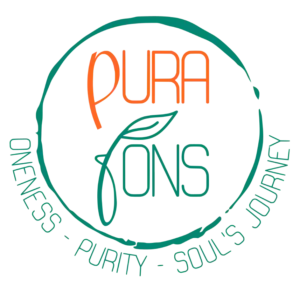Does feeling nervous make you “feel butterflies” in your stomach? Have you ever had a gut feeling about something? These sensations aren’t just metaphors. They tell you about how your gut and brain communicate with each other. Your gut and brain are connected in a real way, and the sensations this connection creates can impact your day-to-day life.
Your digestive system and your brain are connected by a network of nerves, hormones, and chemicals. This connection influences your physical and mental health. Here are some of the most fascinating aspects of the gut-brain connection and how to improve it.

The vagus nerve: a two-way highway
The vagus nerve plays an important role in the gut-brain connection. This nerve connects the brainstem to the abdominal region and sends signals between each other. The vagus nerve can have an effect on stress resistance, digestion, heart health, and immunity.
When you are stressed, the mind turns on the “fight or flight” mode, and the brain stimulates the release of stress hormones like adrenaline and cortisol. These hormones can have an effect on your intestines by slowing digestion, increasing inflammation, and pain sensitivity. This can cause gastrointestinal issues like irritable bowel syndrome (IBS), ulcers, and acid reflux.
On the other hand, your diet influences your brain – for example when you enjoy what you are eating, your gut releases serotonin, a neurotransmitter that regulates your mood, sleep, and appetite. Serotonin travels to the mind through the vagus nerve, making you feel happier – another proof that a healthy diet improves well-being!8
The vagus nerve is also responsible for transmitting the effect of probiotics on mental health. Studies of the National Center for Biotechnology Information have proven that probiotics help lessen anxiety and depressive episodes by boosting the synthesis of GABA, a neurotransmitter that relaxes the nervous system.

The microbiome: a powerful, dynamic system
The microbiome is a crucial element of the gut-brain relationship. It is made of millions of bacteria that reside in your digestive tract.These microorganisms support healthy digestion, vitamin production, infection prevention, and the immune system in general. But they also produce substances that have an impact on the brain through modulating inflammation, blood-brain barrier characteristic, neurogenesis (increase of young brain cells), and gene expression.
Some microbes can also produce dopamine, another neurotransmitter that regulates motivation, reward, and pleasure.
Hormones that play a role in the relationship between the stomach and the brain can also interact with the microbiome. For instance, certain microorganisms have the ability to make or break down estrogen which affects mood, memory, and cognition. Cortisol, a stress hormone, can also be influenced by microbes.

How to enhance the gut-brain connection
The complex and dynamic relationship between the gut and the brain may have significant effects on both physical and mental health. Therefore, it’s important to take care of both your stomach and your brain.
Here are some methods to improve the relationship between the two:
Follow a balanced diet rich in healthy foods, such as:
∙ fibre from fruit and vegetables
∙ whole grains – gluten-free products are proven to be particularly delicate with the digestive system. We recommend Lima Superfruits Porridge or Whole grain Basmati Rice
∙ lean protein
∙ healthy fats like olive oil and avocado
Additionally, practise relaxation techniques such as meditation, breathing exercises, yoga, and swimming.
Complete your diet with supplements that are particularly good for the digestive system, such as:
It is also important to avoid processed foods, processed sugars, artificial sweeteners, alcohol, and trans fats since they can damage or aggravate your digestive system and general health.
If you want to add supplements to your diet, be sure to check with your doctor first. There are plenty of possibilities to improve your well-being – make sure you enjoy all the benefits!













